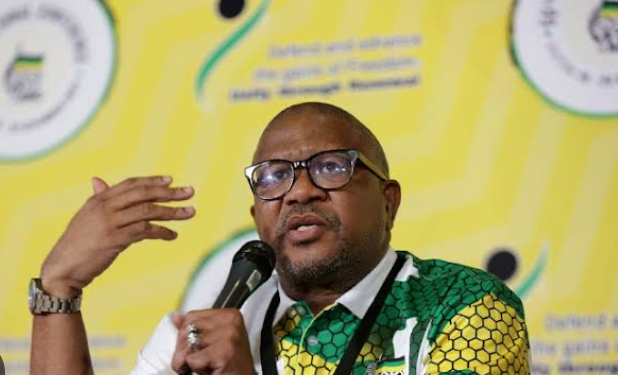- The ANC is intensifying its renewal efforts in KwaZulu-Natal (KZN) after losing significant support in the recent May elections, largely due to competition from Jacob Zuma’s newly formed uMkhonto weSizwe (MK) Party.
- Secretary-General Fikile Mbalula announced plans to reconnect with local communities and address service delivery issues to win back disillusioned voters.
- With the 2029 elections approaching, the ANC faces tough competition and internal challenges as it strives to solidify its influence in the crucial KZN region.
The African National Congress (ANC) is accelerating its renewal strategy in KwaZulu-Natal (KZN) to regain influence after facing substantial losses in the recent May elections. The party’s declining support in KZN has been largely attributed to the rapid rise of the uMkhonto weSizwe (MK) Party, spearheaded by former President Jacob Zuma. This new political rival has quickly gained traction, appealing to many of the ANC’s traditional supporters.
At a rally held in Durban, ANC Secretary-General Fikile Mbalula emphasized the importance of reconnecting with communities across KZN. Acknowledging past missteps, including internal conflicts and issues in service delivery, Mbalula noted, “The ANC remains the home of the people. Our mission now is to reconnect with every citizen, address their concerns, and prove that we are still the movement capable of leading South Africa toward prosperity.”
The ANC’s renewal approach includes a comprehensive door-to-door campaign, aimed at restoring relationships in regions where support has shifted toward the MK Party. Local ANC leaders are being empowered to address pressing issues like unemployment, poor service delivery, and rising crime rates in hopes of rebuilding trust and credibility within KZN communities.
Since its inception, the MK Party under Zuma’s leadership has reshaped the political landscape in KZN, pledging loyalty to liberation values and promising improved governance. This development has compelled the ANC to reevaluate its approach in the province, where it now faces a serious challenger. Analysts suggest that the ANC’s challenges in KZN reflect broader issues it faces nationwide, underscoring the difficulties of maintaining unity and public trust amid growing dissatisfaction.
Despite these challenges, Mbalula remains optimistic about the ANC’s future, asserting that the party has the resilience to bounce back. “The ANC has faced challenges before, and we will come out stronger. This renewal is not merely a slogan; it’s a pledge to the people of KZN and South Africa as a whole,” he declared.
As the 2029 elections approach, KZN remains a critical battleground for the ANC. The outcome of the party’s renewal efforts in this region could have a lasting impact, influencing its trajectory both in KZN and across South Africa.






















